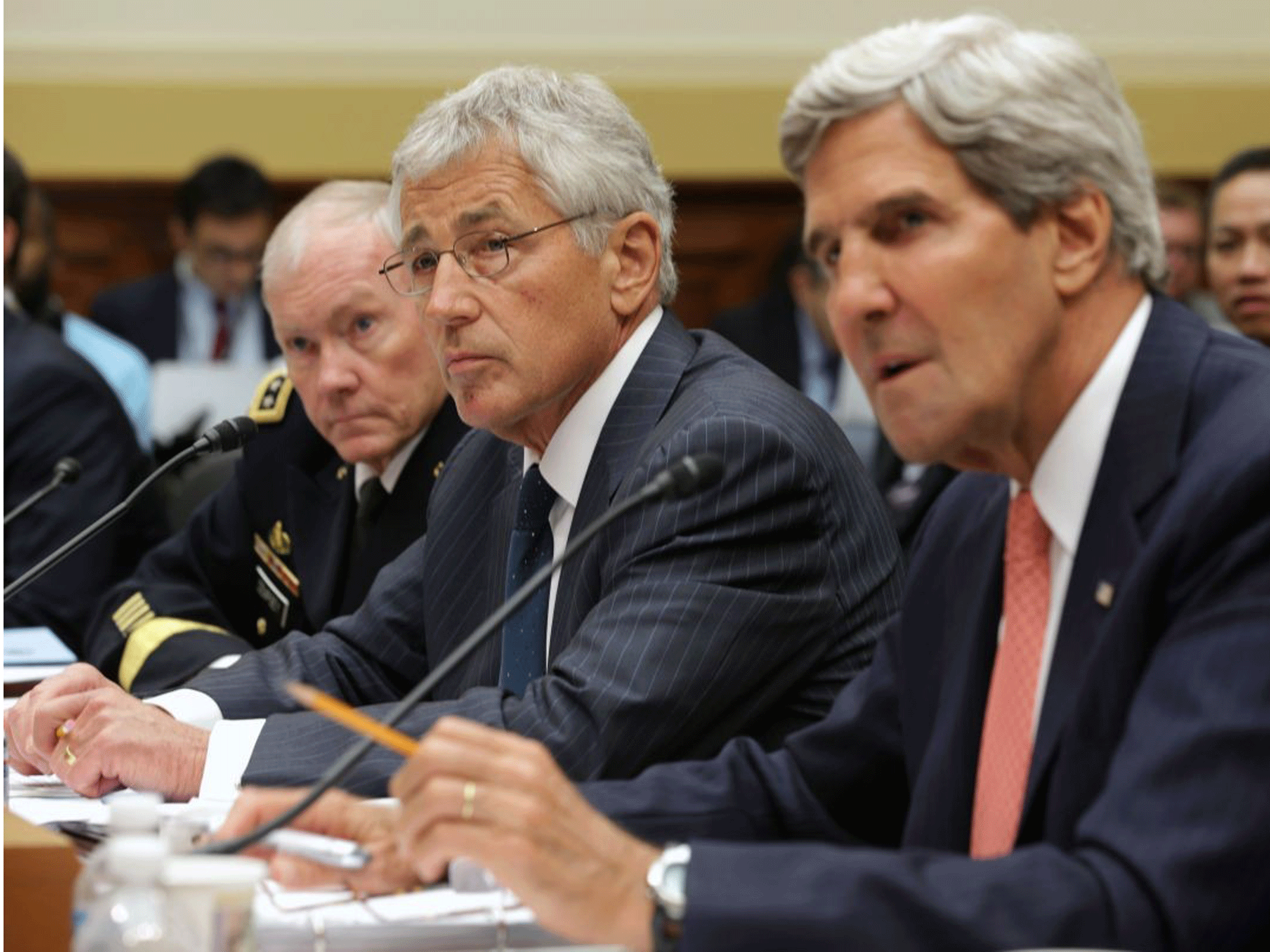Senate Foreign Relations Committee backs 'limited' US strike against Assad in Syria's civil war
Committee also votes in favour of Senator John McCain's amendments to make Assad resign

Your support helps us to tell the story
From reproductive rights to climate change to Big Tech, The Independent is on the ground when the story is developing. Whether it's investigating the financials of Elon Musk's pro-Trump PAC or producing our latest documentary, 'The A Word', which shines a light on the American women fighting for reproductive rights, we know how important it is to parse out the facts from the messaging.
At such a critical moment in US history, we need reporters on the ground. Your donation allows us to keep sending journalists to speak to both sides of the story.
The Independent is trusted by Americans across the entire political spectrum. And unlike many other quality news outlets, we choose not to lock Americans out of our reporting and analysis with paywalls. We believe quality journalism should be available to everyone, paid for by those who can afford it.
Your support makes all the difference.The influential Senate Foreign Relations Committee approved a resolution on Wednesday authorising limited US military intervention in Syria, ahead of a contentious debate in the full Senate next week on the use of force.
The committee voted 10-7 in favour of a compromise resolution that sets a 60-day limit on any engagement in Syria, with a possible 30-day extension, and bars the use of US troops on the ground for combat operations.
The compromise is narrower than President Barack Obama's original proposal but helps meet his administration's goal of punishing Syrian president Bashar al-Assad's government for what the United States claims was the use of chemical weapons on Syrian civilians, killing more than 1,400 people.
The relatively close committee vote reflected the broad divisions on the authorisation in Congress, where many politicians fear it could lead to a prolonged US military involvement in Syria's civil war and spark an escalation of regional violence.
Five Republicans and two of Obama's fellow Democrats - Chris Murphy and Tom Udall - voted against the resolution. Democrat Ed Markey voted "present," saying in a statement that he is still undecided.
The full Democratic-controlled Senate is expected to vote on the resolution next week. The Republican-controlled House of Representatives also must approve it. Both votes are expected to be close, as scores of politicians in both parties have yet to stake out a public position other than to say they are looking for more answers.
The committee also backed a controversial series of amendments put forward Republican senator John McCain that would make it US policy to seek to "change the momentum of the battlefield" in such a way as to force Assad from office.
Obama and administration officials have urged Congress to act quickly, saying US national security and international credibility are at stake in the decision on whether to use force in Syria in response to the use of chemical weapons.
"If we don't take a stand here today, I guarantee you, we are more likely to face far greater risks to our security and a far greater likelihood of conflict that demands our action in the future," Secretary of State John Kerry told the House Foreign Affairs Committee on Wednesday.
"Assad will read our silence, our unwillingness to act, as a signal that he can use his weapons with impunity," Kerry said.
Protesters held hands splattered with blood-red paint in the air behind Kerry as he spoke at a House hearing further emphasising the scepticism among politicians in both parties about the authorisation.
House members grilled Kerry, Defence Secretary Chuck Hagel and General Martin Dempsey, chairman of the US military's Joint Chiefs of Staff, with questions about the duration, targets, potential response and level of international support for military action in Syria.
"Whether we ultimately support a resolution on the use of force or not, it will depend on how these concerns are addressed in the coming days by the administration," Republican Steve Chabot told the officials.
Join our commenting forum
Join thought-provoking conversations, follow other Independent readers and see their replies
Comments